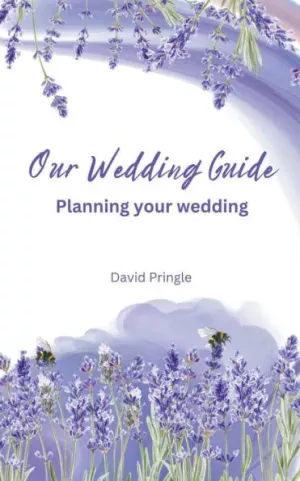If you click on the links we provide, we may receive compensation.
Preface to the Vows
Immediately following The Intentions comes the Preface to the Vows. This introduces, and gives context to the Vows that are about to be spoken and agreed upon.

The Preface to the Vows expresses the meaning and importance of the Vows, not legally, but in terms of significance.
Vows are serious, and should be taken seriously.
Some authors include elements of humor at varying points in the wedding ceremony. The Intentions, Preface to the Vows, and taking the Vows are not the place for humor. This is a serious moment that has personal, relational, financial and legal implications.
Humor by its very nature has the quality of making light, or poking fun at a given circumstance. While a wedding is a joyous occasion, and there is a time for good humor at select points during the event, one needs to choose wisely where and when to interject humor. You want the wedding to be in good taste, well within the borders of social acceptability.
Both the intentions and the vows contain elements that are required to make the wedding legal and authentic. Be as creative as you like, however, someplace within the intentions and the vows the couple has to indicate and agree that their desire, and the purpose of the event, is to be married.

Commitment ceremonies, ceremonies of the affirmation of one’s relationship, and other formal public expressions that may reflect mutual love do not not necessarily indicate that the event involves a legal marriage. These may fall outside what it means to be legally married.
To be legally married one needs a marriage license, an officiant legally authorized to perform the ceremony, an expression from the couple that it is their desire and intent to be married demonstrated by the ritual in which they are a participant, and a declaration made by the officiant.

The Preface to the Vows adds charm, meaning, and another opportunity for the engaged couple to dialogue about what it means to take such vows. Once again, it is critical that the couple’s ideas be discussed with officiant well in advance of the ceremony.
The officiant in this section of the ceremony is specifically addressing the engaged couple. She/he should warmly maintain good eye contact with each individual.
Consider the following examples of wording that can add value as the couple approaches expressing their Vows.

The vows you take today may seem magical and powerful, but this is only because your hearts make them so.
Left unto themselves, these words do not make you husband and wife, nor do they change in any way the relationship that exists between you.

We have never yet devised a promise that cannot be broken. Laws, social pressures, conscience, or even pride, have not safeguarded what was once our strong intent. We have always found ways to break the promise or shape its meaning to match our own desires.
Words have been spoken throughout time, but it is the steadfastness of the heart that gives meaning to these words. Words can express the sentiments of the heart but it takes the heart’s continuing devotion to give them meaning.
It is not simply to vows, or to the institution of marriage that we appeal at this moment of commitment. It is to that which lies within each of you. For each must draw from that which is within to give to the other; your gifts must be mutual.
When you are pressured by the vicissitudes of life, remember your vows. Say them in your heart and to each other. Express them in actions and in many different ways throughout the coming days and years.

Vows are words that express the commitment which you both intend to keep. Vows can be broken, but not without doing damage to those who have made them.

Your vows today are filled with meaning. Promise to yourself and to each other, that you will keep them sacred.
Treasure their worth, for they can never be replaced.

Vows are words that have power only because you give them that power.
On their own, they are meaningless, but when rooted in your love, your determination, your passion, and your kindness, they are the strongest force in the world.

God’s word tells us that, “the fruit of the spirit is love, joy, peace, longsuffering, gentleness, goodness, faith, meekness, and temperance.
(Galatians 5:22-25)
You have these gifts because you are God’s children.
As you live in the Spirit, may you also walk together in the Spirit.

The vows that you are about to take will have meaning only in so far as you treasure them. Know that they are the foundation of your marriage. If you keep them, you will have clarity in your marriage and in your relationship.

Know that they are the foundation of your marriage. If you keep them, you will have clarity in your marriage and in your relationship.
Life does not, however, allow us to always live harmoniously. You will be challenged and tempted. You may even break your vows. We pray that this may not happen, but should your good resolutions be broken, the damage is not irreparable. Your vows can become stronger through adversity if you are willing to pay the price.
When temptations come, when you are tempted to say, “I cannot go on”, when you hear the unwelcome whisper in your ear that says, “It is not worth it”, you are not powerless.

When your actions lead you to shame, I urge you to share your struggle with each other. If you conceal your shortcomings, they will increase in strength and, if not checked, enslave you.
If you share your struggles with each other, however great the pain, the obstacles will fade like a puff of smoke. Over time, you will scarcely be able to find their trace.
The path to strengthening your vows is through effort and sharing. The oak begins as a small sapling. In the end it stands as a proud testament to the worth of commitment.

May the fragile newness of your vows become the bedrock of your life together.



